Nobody likes a slow website. A slow loading page can cost businesses a fortune in lost sales. According to statistics, 47% of Internet users expect web pages to load in two seconds or less. Exceeding this threshold has a negative impact on your traffic: if the audience does not receive what they expect from the site, the risk of losing all customers or readers is extremely high. At the same time, all these problems occur because the sites are located at a great distance from their visitors, but there is a solution - Content Delivery Network.
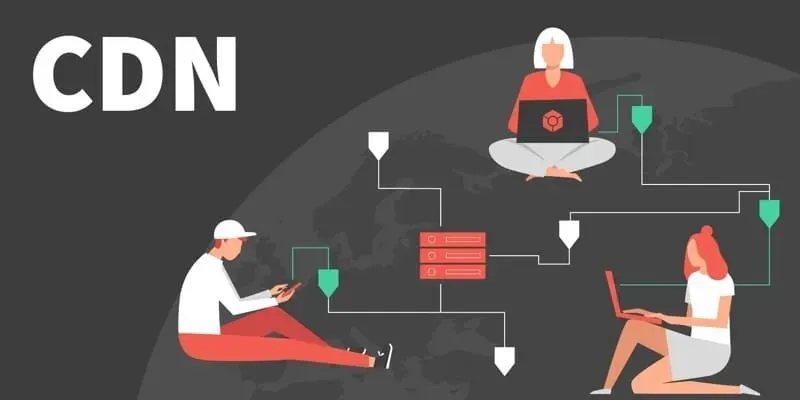
How does the CDN (Content Delivery Network) work?
To understand how the CDN works, let’s imagine that you type a request in the Google search box. After hitting the Enter key, a server containing the required page receives your request. The problem is that this server can be located anywhere in the world. The speed of loading varies according to the distance from you. If you are geographically distant from the server where the site is hosted, the loading time can be very long.
The fact is that websites typically contain over 90% static content that is not unique to each user. Every time users from different locations open your website, they download almost the same data from your servers, which are usually located in one city.
This problem can be easily solved by the CDN. The Content Delivery Network servers are located all over the world and can cache and synchronise the same piece of content on all servers. When a user accesses the content on your site, the CDN simply redirects them to the geographically closest CDN server that has the corresponding file.
By caching data and distributing multiple requests for the same information across the network, rather than on a single server, the traffic load is more balanced. This eliminates problems such as latency, browser crashes and latency.
Who needs a content delivery network most?
Firstly, projects aimed at users around the world. Secondly, sites using video streaming, for example, various online cinemas. Thirdly, huge media portals that store a lot of information, for example, galleries or photo stocks. But in addition to the giant sites mentioned, CDN is also suitable for small businesses such as online shops, news portals, forums, etc. The loading speed of websites is an advantage for any business.
E-commerce
- High availability, even during peak sales
- Improvement of the site’s ranking
- Conversion growth
Software distribution
- A positive experience for end-users worldwide
- Quick download of the software
- Reduced server load when distributing updates
Games
- Worldwide delivery of game content
- Increase user loyalty
- Reduction of infrastructure costs
Video
- Delivery of video on demand (VoD)
- High quality of service, even for geographically remote users.
Mass media
- High availability
- Reduction of the bounce rate
- The increase in the number of loyal readers
Advertising
- Fast loading banners and videos
- Freeing up resources for new projects
- Improve the effectiveness of advertising campaigns
How can your website benefit from using a CDN?
- Improvement of the conversion rate
Every second you wait reduces the site’s conversion rate by 7%*.
- Reduction of the bounce rate
Within three seconds, 40% of visitors leave the site.
- Improved search engine ranking
The speed of the site affects its ranking. Search engines mainly display resources that do not keep users waiting.
- Cost reduction
After shifting the load to the caching nodes, you’ll free up main server capacity for other projects and can confidently handle traffic growth.
- Increased fault tolerance
If something happens to one of the caching servers, users will receive content from the other closest server and will not notice any disruption to your project.
- Improving safety
If all data transfers are handled by a single server, this increases your vulnerability to DDoS attacks and other vulnerabilities. CDN can help you protect your sensitive data from hackers. Because CDN constantly updates TLS / SSL certificates, ensuring higher standards of authentication and encryption.
What should I consider when choosing a CDN?
1. Size of the network
Your CDN provider must have points of presence in the required regions.
2. Geographical coverage
For example, some CDN providers have good coverage only in America and Europe, but poor coverage in Asia and Latin America.
3. Cost and pricing model
- Many providers require a minimum 12-month contract (minimum contract length) and also charge a minimum fixed amount for the service each month (minimum monthly costs). Others operate on a PAY-as-you-go modelGB.
- A number of suppliers do not allow early testing of their solution - you must speak to their sales team first.
- Check if you are paying for queries, inputs and traffic volume?
4. Easy integration with your hosting
5. DDoS and Web Application Firewall (WAF) protection
Conclusion
If you want to maintain your level of service as you expand your Internet presence, a reliable and scalable content delivery network is a worthwhile investment. It will reduce the problem caused by delays and give your visitors the speed, performance and consistency they expect from the website.
How to deploy a CDN on Hidora?
- Create a new environment that contains a load balancer, or/and a web server.

- Go to Marketplace->Add-Ons. Choose Premium CDN, and press install.
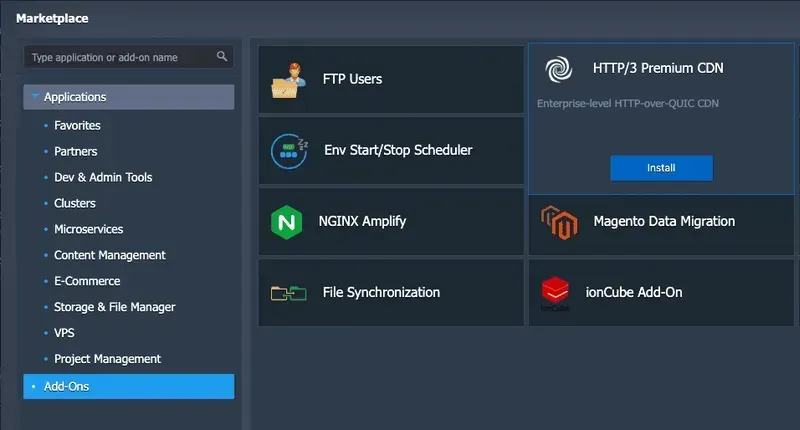
- Select your environment. Choose “Select standalone environment”.
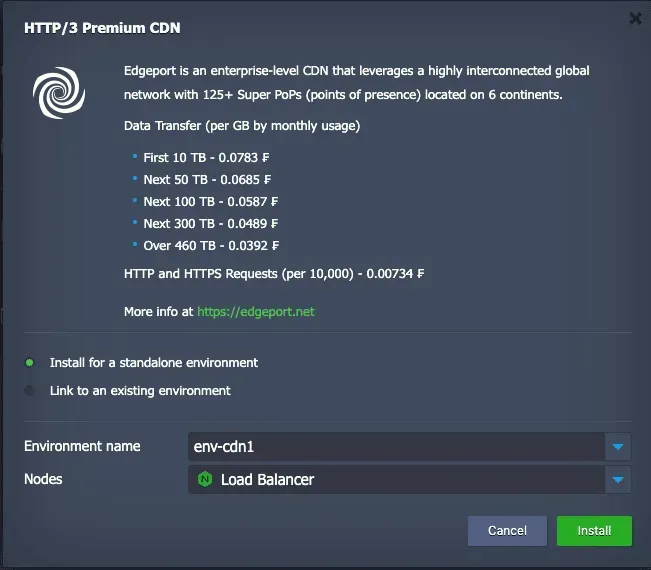
- After installation, you can go to “Environment -> Load Balancer -> Addons”. Find Http/3 premium CDN and press Configure. You can link your own custom domain name.
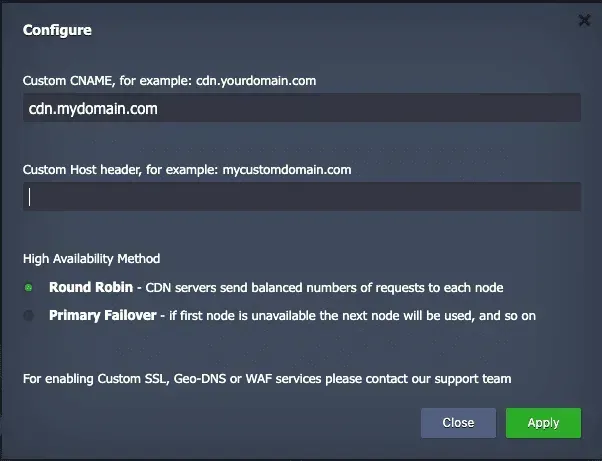
- You can also disable one or all CDN entries by pressing the Purge or Purge All menu.
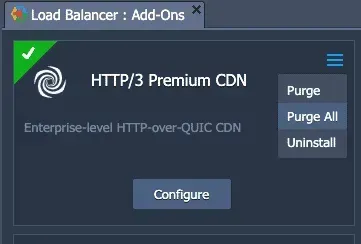
Why faster page load times are better for your website [Infographic]..








